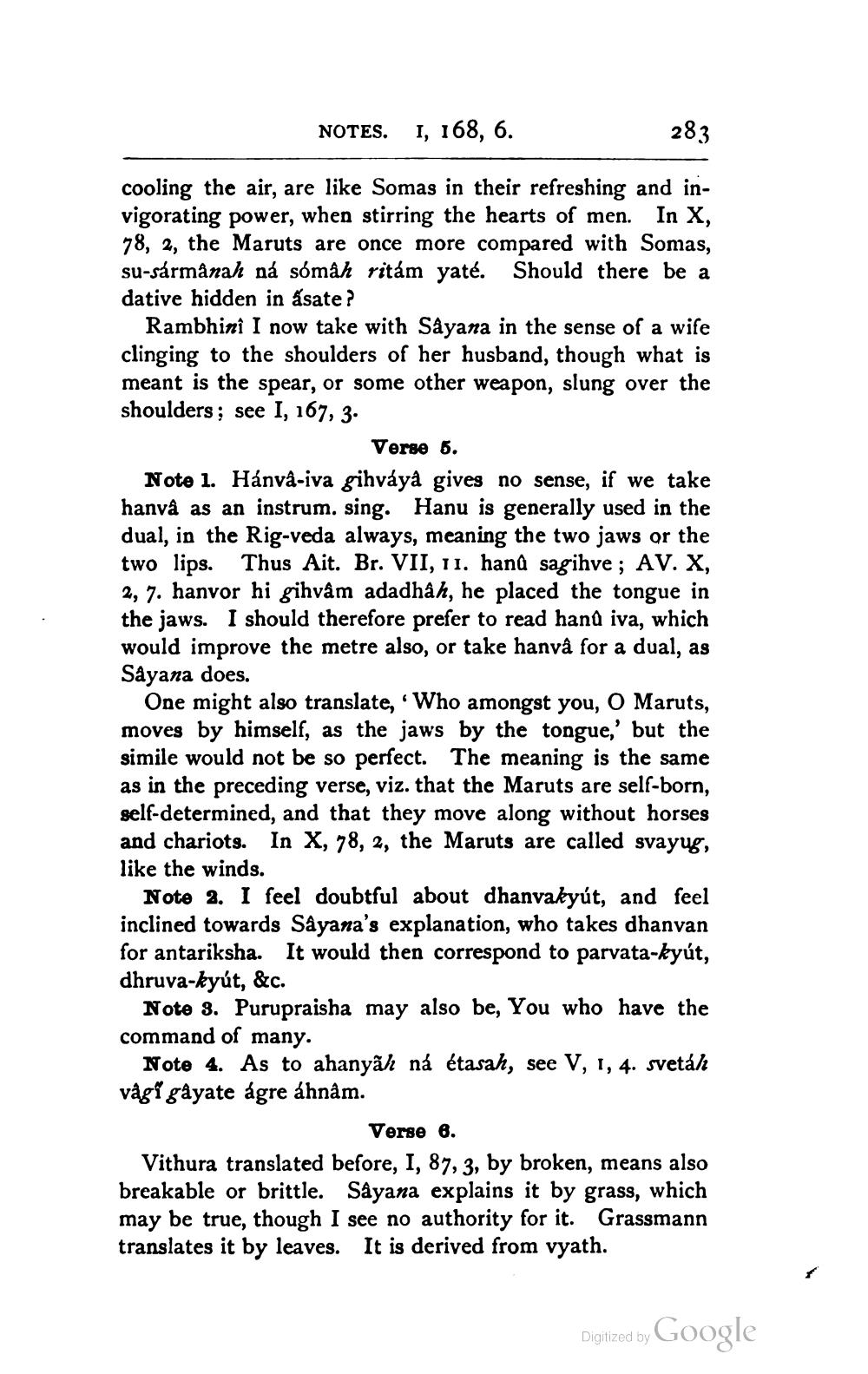________________
NOTES. I, 168, 6.
283
cooling the air, are like Somas in their refreshing and invigorating power, when stirring the hearts of men. In X, 78, 2, the Maruts are once more compared with Somas, su-sármånah ná sómah ritám yaté. Should there be a dative hidden in ásate?
Rambhini I now take with Sayana in the sense of a wife clinging to the shoulders of her husband, though what is meant is the spear, or some other weapon, slung over the shoulders ; see I, 167, 3.
Verse 6. Note 1. Hánva-iva gihváyà gives no sense, if we take hanvå as an instrum. sing. Hanu is generally used in the dual, in the Rig-veda always, meaning the two jaws or the two lips. Thus Ait. Br. VII, 11. hand sagihve; AV. X, 2, 7. hanvor hi gihvâm adadhâh, he placed the tongue in the jaws. I should therefore prefer to read hand iva, which would improve the metre also, or take hanvå for a dual, as Sayana does.
One might also translate, 'Who amongst you, O Maruts, moves by himself, as the jaws by the tongue,' but the simile would not be so perfect. The meaning is the same as in the preceding verse, viz. that the Maruts are self-born, self-determined, and that they move along without horses and chariots. In X, 78, 2, the Maruts are called svayus, like the winds.
Note 2. I feel doubtful about dhanvakyút, and feel inclined towards Sayana's explanation, who takes dhanvan for antariksha. It would then correspond to parvata-kyút, dhruva-kyút, &c.
Note 3. Purupraisha may also be, You who have the command of many.
Note 4. As to ahanyāh ná étasah, see V, 1, 4. svetáh vagi gayate ágre áhnâm.
Verse 6. Vithura translated before, I, 87, 3, by broken, means also breakable or brittle. Sayana explains it by grass, which may be true, though I see no authority for it. Grassmann translates it by leaves. It is derived from vyath.
Digitized by
Digitized by Google




